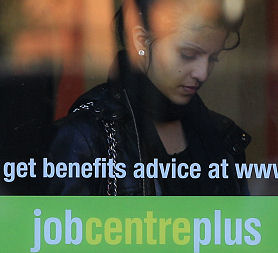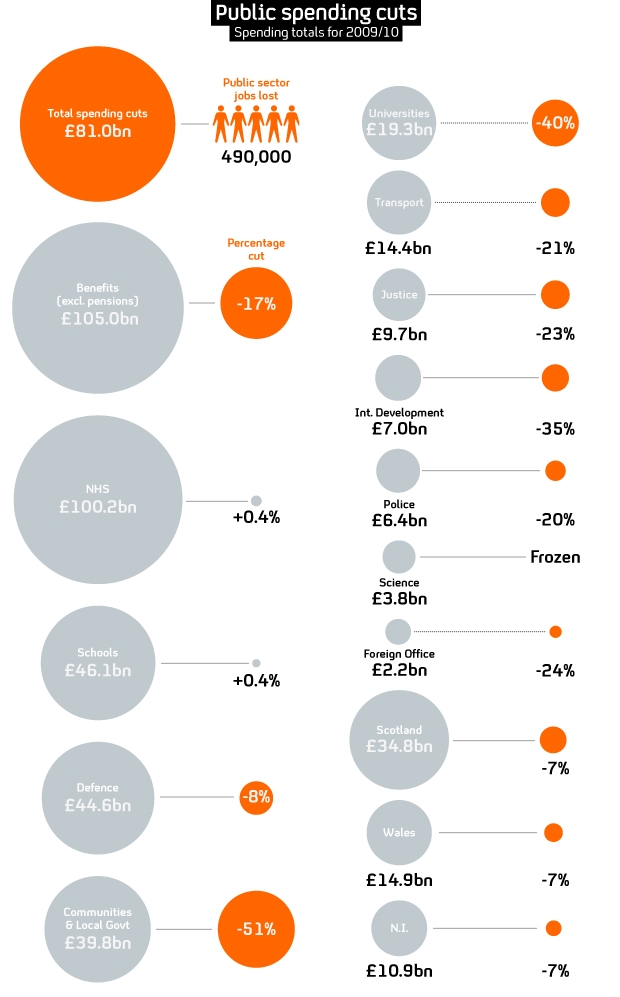How the 81 billion pounds of spending cuts are shared out
The Chancellor George Osborne announces £81 billion of cuts in his spending review. Channel 4 News looks at how the pain is spread around the departments.

The average government department will see cuts of 19 per cent, lower than the 25 per cent reduction they had been told to prepare for.
Mr Osborne said in the Commons that this was due to larger than expected savings in the welfare budget.
In his emergency budget in June, the Chancellor announced £11bn of savings; this has now risen to £18m.
Biggest savings
The biggest savings come from scrapping child benefit for higher rate taxpayers, time-limiting Employment Support Allowance and freezing Working Tax Credit.
Half a million public sector jobs are likely to go, but the Government met its pledge to increase spending on schools and the NHS in the spending review.
Spending in these areas will rise by 0.4 per cent in real terms, far smaller increases than they enjoyed under the last government.

The Defence budget will be cut by 8 per cent, one of the smallest reductions.
The Communities and Local Government Department will have its budget cut by 51 per cent, with councils receiving 28 per cent less from Whitehall.
Universities will receive 40 per cent less, as funding is transferred from central government to graduates through higher tuition fees.
The police budget will be cut by 20 per cent, with similar reductions for the Justice and Transport Departments and the Foreign Office – although International Development is one of the winners, with a 35 per cent rise.
The science budget will be frozen, rather than suffer big cuts, because of its importance to the economy.
Revenue and Customs, which administers Child Benefit and tax credits, will see a 15 per cent cut.
And Scotland, Wales and Northern Ireland will have their budgets reduced by 7 per cent.
-
Latest news
-
Taylor Swift’s new break-up album breaks records3m

-
NHS trust fined £200K for failings that led to death of two mental health patients3m

-
Sunak vows to end UK ‘sick note culture’ with benefit reform3m

-
‘Loose talk about using nuclear weapons is irresponsible and unacceptable’, says head of UN’s nuclear watchdog3m

-
‘There wasn’t an Israeli attack on Iran,’ says former adviser to Iran’s nuclear negotiations team7m

-




